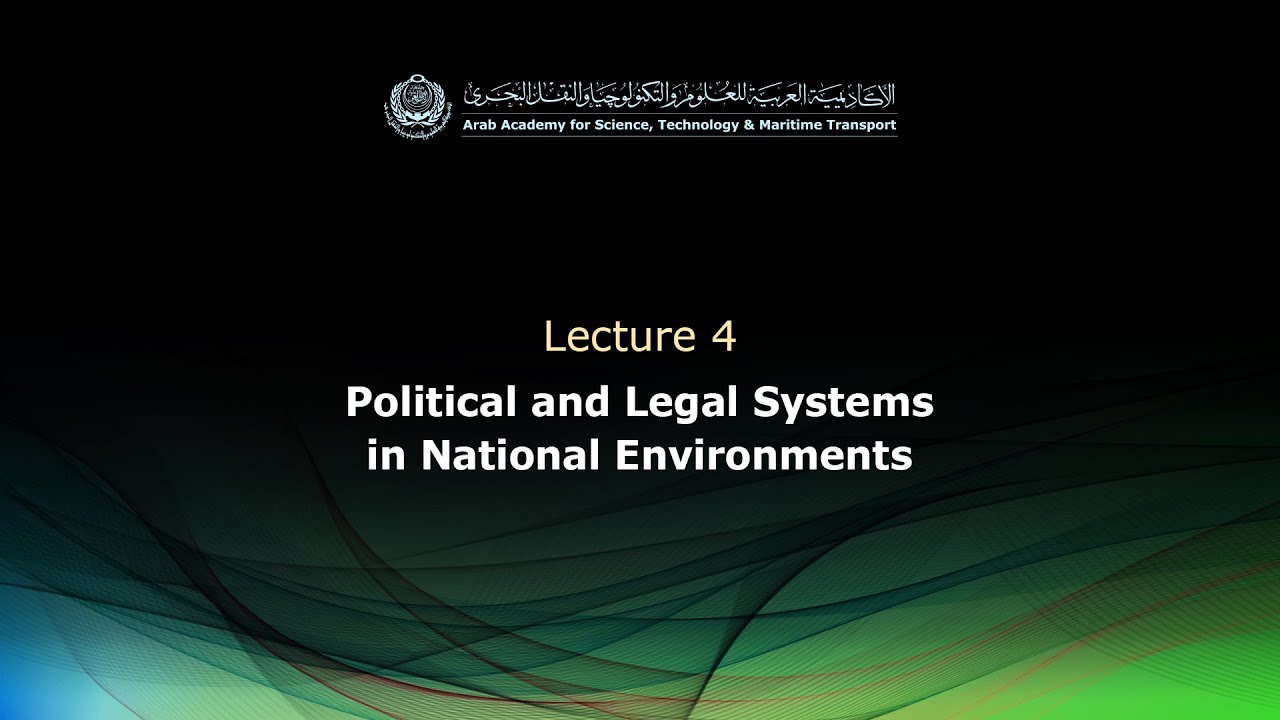The Influence Of Politics On The Legal System - Navigating The Influence
The influence of politics on the legal system plays a crucial role in maintaining order and justice in any society. However, it is not immune to external influences such as politics, which can have a significant impact on the functioning and outcomes of the legal system.
Author:K. N.Mar 21, 202344.1K Shares1.2M Views

The influence of politics on the legal systemplays a crucial role in maintaining order and justice in any society. However, it is not immune to external influences such as politics, which can have a significant impact on the functioning and outcomes of the legal system.
Politics can influence legal decisions, appointments of judges, and the funding of legal institutions.
This essay will explore the various ways in which politics influences the legal system and the potential consequences of this influence.
What Is The Relationship Between Law And Politics?
The relationship between law and politics is complex and multifaceted. Law and politics are interconnected in several ways, as politics often shape the creation, implementation, and interpretation of the law.
In this sense, the law is a reflection of political power and ideology. The relationship between law and politics is often contentious, with political actors seeking to influence the law in ways that align with their interests and values.
One way in which politics influences law is through the legislative process. Legislatures are the primary law-making bodies in democratic societies, and the political process of enacting lawscan be contentious and reflect the political priorities of those in power.
The political process of enacting laws can involve intense debates and lobbying efforts by various stakeholders seeking to influence the shape and content of the law.
The legislative process can also reflect the political makeup of the government, with the governing party using its majority to pass laws that reflect its ideology and priorities.
Politics also shapes the interpretation and implementation of the law. Judges, who are appointed by political actors, play a critical role in interpreting the law.
The interpretation of the law can reflect the judge's political ideology, and their decisions can have significant consequences for how the law is enforced.
Political actors can also use their power to influence the implementation of the law, such as through the allocation of resources or the creation of regulatory bodies.
Importance Of Law In Politics
Law plays a crucial role in politics, as it provides the framework for the exercise of political power and the functioning of democratic societies.
The importance of law in politics can be seen in several ways, as law creates a system of checks and balances that limits the exercise of political power, protects the rights of citizens, and provides a framework for resolving disputes and conflicts.
One of the most important roles of law in politics is to provide a system of checks and balances that limits the exercise of political power.
In democratic societies, the rule of law ensures that those in power are held accountable for their actions and that they do not abuse their power.
The law provides a framework for the functioning of democratic institutions, such as the legislature, the executive, and the judiciary, ensuring that power is distributed among these institutions and that they act in the public interest.
Law also protects the rights of citizens in democratic societies, ensuring that they are free from arbitrary and unjust actions by those in power.
The law provides a framework for protecting individual rights, such as freedom of speech, religion, and association, as well as protecting minority rights and ensuring equal treatment under the law.
The law also provides a framework for protecting property rights, ensuring that individuals are free to engage in economic activity without fear of expropriation or confiscation.
The Influence Of Politics On The Legal System In Culture
Law and politics are integral components of any culture, as they reflect the values and beliefs of society and provide a framework for the exercise of power and the resolution of disputes.
In many cultures, law, and politics are deeply intertwined, with legal systems and political institutions reflecting the social, cultural, and historical contexts in which they developed.
Culture plays a critical role in shaping the law, as legal systems are often developed within specific cultural contexts, reflecting the values and beliefs of the society in which they are created.
For example, traditional legal systems in many cultures are based on customary practices and beliefs that reflect the social, religious, and cultural norms of the community.
These legal systems may differ significantly from Western legal systems, which are based on the principles of the rule of law and individual rights.
Politics in culture can also reflect the values and beliefs of a society, with political institutions and practices reflecting the social, economic, and cultural contexts in which they developed.
Political systems may differ significantly between cultures, with some societies emphasizing democratic principles and others relying on more authoritarian forms of government.
Political culture can also be shaped by historical events, such as colonialism, wars, and revolutions, which can leave a lasting impact on political institutions and practices.

ELT326 - Lecture 4: Political and Legal Systems in National Environments
Difference Between Law And Politics
Law and politics are two separate but closely related fields. While law refers to the rules and regulations that govern society and provide a framework for the functioning of legal institutions, politics refers to the exercise of power and the processes by which decisions are made and implemented in society.
The primary difference between law and politics lies in their objectives. The objective of law is to provide a framework for the functioning of legal institutions and the resolution of disputes, while the objective of politics is to exercise power and influence the decision-making processes of society.
Law is concerned with the enforcement of rules and regulations, while politics is concerned with the exercise of power and influence.
Another difference between law and politics is the nature of their decision-making processes. In legal systems, decisions are typically made through a process of reasoning and analysis, with legal institutions relying on precedent and established legal principles to guide their decision-making.
In politics, decisions are often made through a process of negotiation and compromise, with political institutions relying on consensus-building and coalition-building to achieve their goals.
People Also Ask
What Is The Role Of Politics In The Law?
Politics plays a significant role in shaping the law, as political decisions can have a significant impact on the creation, implementation, and interpretation of legal rules and regulations.
How Does The Legal System Interact With Politics?
The legal system interacts with politics in various ways, including the appointment of judges, the interpretation of legal statutes, and the enforcement of legal decisions.
What Is The Impact Of Politics On The Judicial System?
Politics can have a significant impact on the judicial system, with political decisions often influencing the appointment of judges, the interpretation of legal statutes, and the funding of legal institutions.
How Does Culture Influence The Relationship Between Law And Politics?
Culture plays a critical role in shaping the relationship between law and politics, with legal systems and political institutions often reflecting the social, cultural, and historical contexts in which they developed.
Conclusion
In conclusion, politics can significantly impact the legal system, with potentially far-reaching consequences.
The influence of politics on the legal system can manifest in various ways, such as the appointment of judges, the interpretation of laws, and the funding of legal institutions.
The politicization of the legal system can undermine its impartiality, leading to a loss of public trust and confidence in the system.
Therefore, it is essential to minimize the influence of politics on the legal system and ensure that the legal system remains independent and impartial.

K. N.
Author
Latest Articles
Popular Articles
